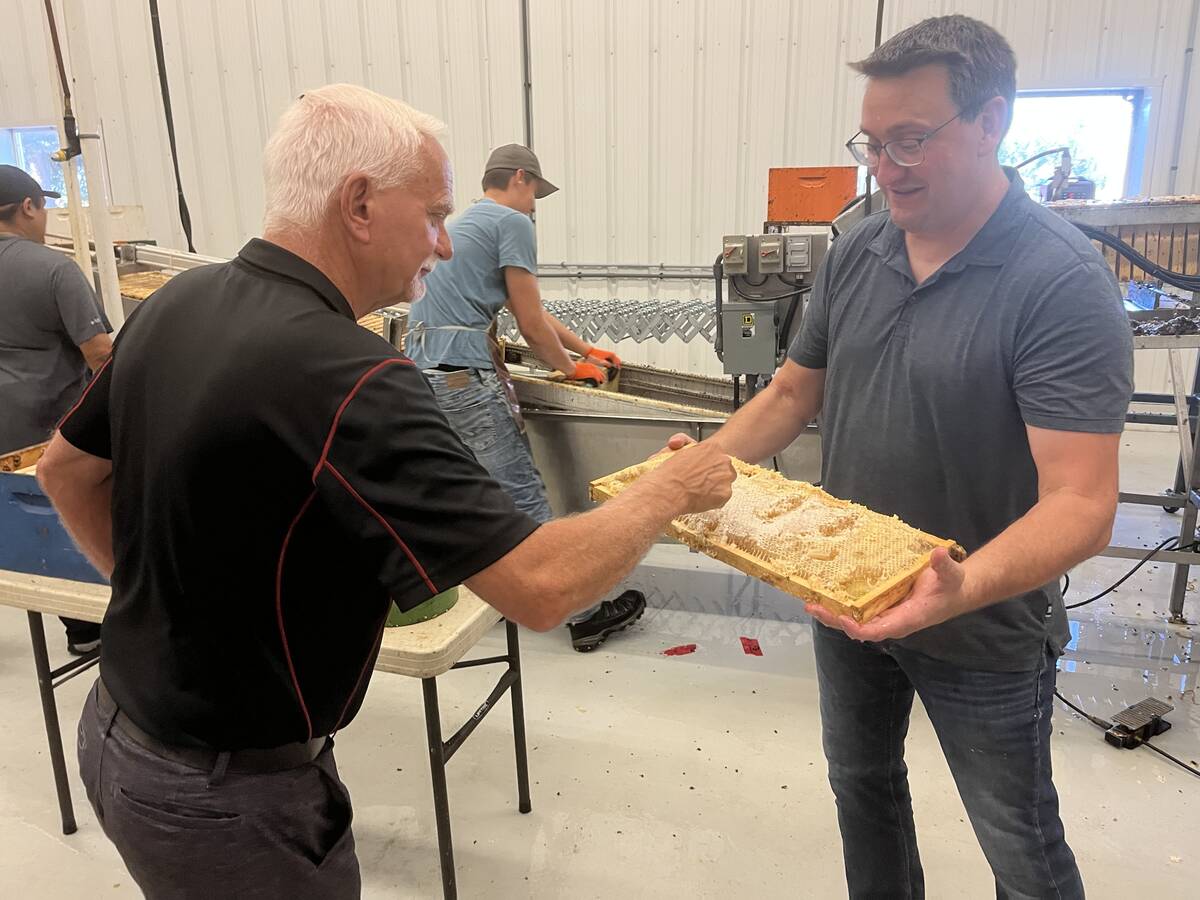Q: I incorporated my farming operation many years ago and am now thinking of retiring. Is it possible to draw a pension or regular income from my corporation after I retire?
A: In theory, there are many ways that you can legally draw money from your company and this can be done even after you retire. In reality, however, there are other factors that may restrict your ability to draw money from the company.
First, does the company have sufficient cash or produce sufficient income to pay you while also paying for operating costs and providing income to the people working on the farm or other shareholders? Second, any payment will to some extent be dependent upon other shareholders agreeing to this.
Read Also

Alberta honey business ‘thrives’ despite bumpy beginnings
Thrive Honey showcases its honey production in market where Alberta produces 40 per cent of all honey produced in the country
Given the uncertainty of agriculture, do you want your retirement income to be dependent on the farm? As an alternative, consider selling the farm and investing the income.
Now to some legal aspects. When the farm was incorporated, did you transfer assets that you owned into the company’s name? If so, did the company pay you in cash or did the company offer you promissory notes and preferred shares? If you haven’t already collected, you would be legally entitled to collect on the loan or cash in the shares. This could be done over a period of years and of course, is based on the assumption that the company has the cash or the ability to obtain a loan to pay you.
The company could agree to retain you as a management consultant and pay you for doing so. Or the company could pay you a retirement bonus. In some cases, the company can pay dividends to its shareholders as long as all agree.
Similarly, the other shareholders could agree to buy your interest out over a period of time. In many small corporations, it is common to have a shareholder’s agreement spelling out the rights of the parties when one wants to retire or leave. This agreement can include determining when shareholders can buy out others and a formula for setting the price.
If you sell out to a non-family member, the situation might be different. The buyer will either buy the assets or the shares of the company. When a non-family member buys the farm, all of the above scenarios could occur, but as a practical matter I suspect it’s much less likely that the new buyer will want to be involved in a scheme in which the former owner continues to draw income from the farm.
These are some general thoughts. You should consult your lawyer to determine what your legal relationship is with the company and with other shareholders. You will also want to get tax advice about what would work the best for you.
Water update
My May 18 column dealt with the interprovincial flow of water. I indicated that diversion of water required permission from the appropriate provincial authority and indicated that in Saskatchewan it was the water corporation. Licensing of water use and matters relating to water diversion are now handled by the Saskatchewan Watershed Authority, not the water corporation. The authority has a number of regional offices but its head office is at 111 Fairford St. E, Moose Jaw, 306-694-3900. There is also a Saskatchewan water hotline, 866-727-5420.
Don Purich is a former practising lawyer who is now involved in publishing, teaching and writing about legal issues. His columns are intended as general advice only. Individuals are encouraged to seek other opinions and/or personal counsel when dealing with legal matters.
















